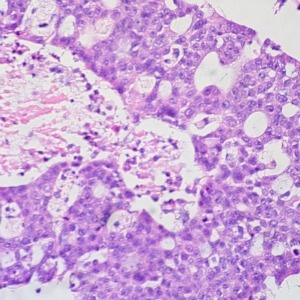GPs in London are inviting in elderly smokers to get their lungs checked out under a pilot to try to detect lung cancers at an earlier stage.
Under the trial, GP practices are inviting in all patients aged 60-75 years who are smokers for a comprehensive lung ‘MOT’ and low-dose CT scan.
The trial has so far investigated some 200 patients with CT scans at University College London Hospitals (UCLH) and the Homerton University Hospital, with plans to roll out the checks across London and then even further if it proves cost-effective.
Speaking at a Westminster Health Forum event today on cancer service transformation, Dr Geoff Bellingan, medical director for the surgery and cancer board at UCLH, said around 50% of patients were taking up the offer of the check up – and that study leads hoped the programme could ‘save 100 lives a year’ across London.
Dr Bellingan told Pulse that GP practices involved in the trial were identifying heavy smokers aged 60-75, and inviting them for ‘a health check which includes smoking cessation and an “MOT” for their lungs, going through a health questionnaire’.
He added: ‘Then they send them straight to a low-dose CT scan – so no chest X-ray. Then the GPs are working with the radiologist to get the reporting right, so that the report back to the GPs is meaningful.’
This meant explaining if the scans suggest ‘this person may have COPD or emphysema’ while a ‘small number will have nodules that need following up, and some will clearly have cancer’.
Dr Bellingan said that the uptake so far of 50% was ‘fantastic, and seemed to span the socio-economic groups’.
The trial is based on work from a Canadian trial that has shown significantly improved early detection and lung resection rates through similar, focused case identification approaches, and the pilot results so far suggest it will be cost-effective, Dr Bellingan said.
UCLH is one of three national ‘cancer vanguards’ set up by NHS England to take forward plans to transform cancer services under the Five Year Forward View.
It is also focusing on improving GP direct access to tests, including the new faecal immunohistochemical test to help diagnose bowel cancer, and use of a multidisciplinary testing centre – offering ‘one-stop shop’ testing to patients with potential signs and symptoms of different types of cancer and other conditions.
Pulse October survey
Take our July 2025 survey to potentially win £1.000 worth of tokens












